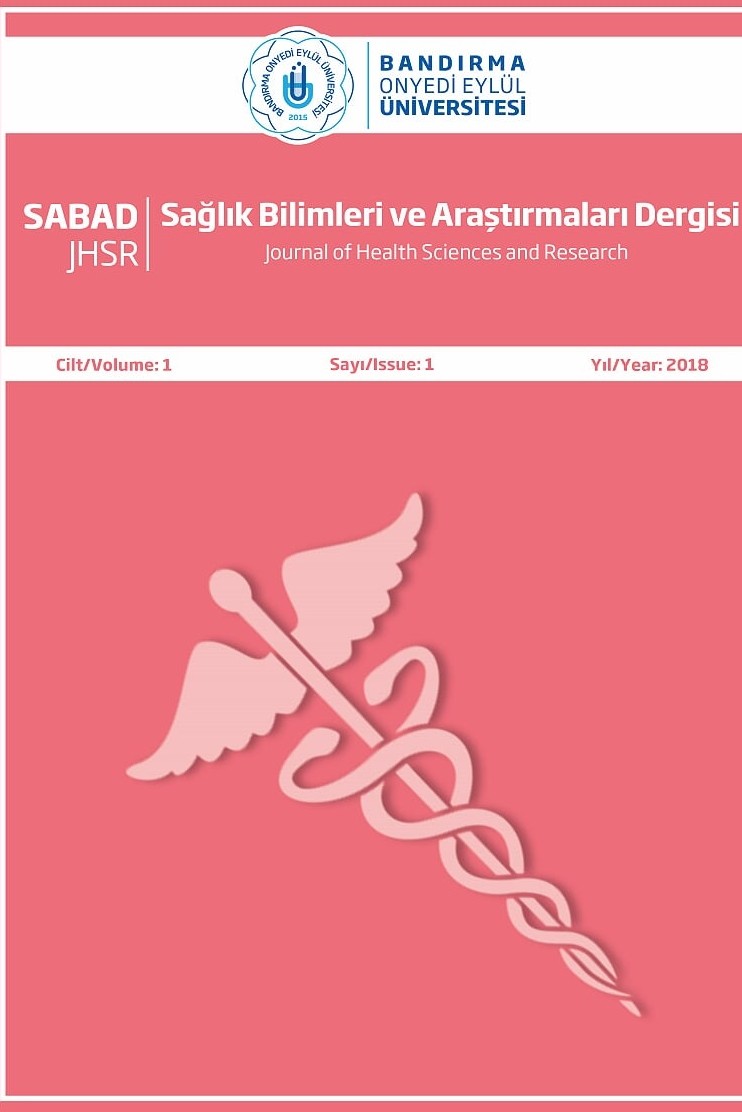Elektroterapi Uygulamalı Seminerinin Elektroterapi Dersinin Öğrenme Çıktıları ve Ders Başarısı Üzerine Etkisi
Elektroterapi, Fizyoterapi, Öğrenciler, Uzaktan Eğitim
Effect of Electrotherapy Practical Seminar on Learning Outcomes and Success of the Electrotherapy Course
Electrotherapy, Physiotherapy, Students, Distance education,
___
- Alaca, N., Feyzioğlu, Ö., Kaba, H., Safran, E. E. (2021). Covid 19 pandemisi öncesi verilen yüz yüze eğitimin ve Covid-19 pandemisi sırasında verilen çevrim içi eğitimin algılanan öğrenim çıktıları üzerine etkisinin karşılaştırılması: Fizyoterapi ve Rehabilitasyon Bölümü. Hacettepe University Faculty of Health Sciences Journal, 8(3), 538-555.
- Alaca, N., Kaba, H., Safran, E. E., Öztürk, Ö. (2022). Fizyoterapi ve Rehabilitasyon bölümünde uygulama içeren ikinci sınıf derslerinin memnuniyet ve algılanan öğrenim çıktıları açısından karşılaştırılması: Covid-19 öncesindeki yüz yüze eğitim ile Covid-19 sırasındaki çevrimiçi eğitim. Sağlık Profesyonelleri Araştırma Dergisi, 4(1), 1-11.
- BANÜ Bologna Bilgi Paketi Elektroterapi I. (2023). Bandırma Onyedi Eylül Üniversitesi. Erişim tarihi 09.03.2023. https://obs.bandirma.edu.tr/oibs/bologna/progCourseDetails.aspx?curCourse=466831&lang=tr
- BANÜ Bologna Bilgi Paketi Elektroterapi II. (2023). Bandırma Onyedi Eylül Üniversitesi. Erişim tarihi 09.03.2023. https://obs.bandirma.edu.tr/oibs/bologna/progCourseDetails.aspx?curCourse=466834&lang=tr
- Beck, A. T., Ward, C. H., Mendelson, M., Mock, J., Erbaugh, J. (1961). An inventory for measuring depression. Archives of General Psychiatry, 4, 561-571. doi:10.1001/archpsyc.1961.01710120031004
- Beck, A. T., Weissman, A., Lester, D., Trexler, L. (1974). The measurement of pessimism: the hopelessness scale. The Journal of Consulting and Clinical Psychology, 42(6), 861-865. doi:10.1037/h0037562
- Bernard, R. M., Abrami, P. C., Borokhovski, E., Wade, C. A., Tamim, R. M., Surkes, M. A., … Bethel, E. C. (2009). A meta-analysis of three types of interaction treatments in distance education. Review of Educational Research, 79(3), 1243-1289.
- Bozkurt, A. (2020). Koronavirüs (Covid-19) pandemi süreci ve pandemi sonrası dünyada eğitime yönelik değerlendirmeler: Yeni normal ve yeni eğitim paradigması. Açıköğretim Uygulamaları ve Araştırmaları Dergisi, 6(3), 112-142.
- Fizyoterapi ve Rehabilitasyon Çekirdek Eğitim Programı. (2016). Erişim tarihi 09.03.2023, https://www.yok.gov.tr/Documents/Kurumsal/egitim_ogretim_dairesi/Ulusal-cekirdek-egitimi-programlari/fizyotreapi_cekirdek_egitim_programi.pdf
- Hisli, N. (1989). Beck depresyon envanterinin üniversite öğrencileri için geçerliliği, güvenilirliği. Psikoloji Dergisi, 7, 3-13.
- Kennedy, D. (2006). Writing and using learning outcomes: a practical guide: University College Cork.
- Moore, J. M. (2018). Mapping learning outcomes across biological and agricultural engineering concentrations within the curriculum. Paper presented at the 2018 ASEE Annual Conference & Exposition.
- Özüdoğru, A., Yinanç, S. B., Özüdoğru, G. (2021). COVID-19 salgını döneminde Fizyoterapi ve Rehabilitasyon eğitiminde uzaktan eğitim ortamı ile yüz yüze eğitim ortamının karşılaştırılması. Türkiye Klinikleri Sağlık Bilimleri Dergisi, 6(4), 787-794.
- Rovai, A. P., Wighting, M. J. (2005). Feelings of alienation and community among higher education students in a virtual classroom. The Internet Higher Education, 8(2), 97-110.
- Seber, G., Dilbaz, N., Kaptanoğlu, C., Tekin, D. (1993). Umutsuzluk ölçeği: geçerlilik ve güvenirliği. Kriz dergisi, 1(3). doi: 10.1501/Kriz_0000000045
- Şavkın, R., Bayrak, G., Büker, N. (2021). Distance learning in the COVID-19 pandemic: acceptance and attitudes of physical therapy and rehabilitation students in Turkey. Rural Remote Health, 21(3).
- Watson, T. (2000). The role of electrotherapy in contemporary physiotherapy practice. Manual therapy, 5(3), 132-141.
- World Health Organization. (2019). Coronavirus disease (COVID-19) Pandemic. Erişim tarihi 09.03.2023, https://www.who.int/emergencies/diseases/novel-coronavirus-2019
- Yürük, Z. Ö., Ergin, G., Biçki, D., Kırdı, N. (2021). Elektroterapide Kanıta Dayalı Uygulamalar İçinde N. Kırdı (Ed.), Fizyoterapi ve Rehabilitasyonun Farklı Alanlarında Elektroterapi Uygulamalarındaki Kanıta Dayalı Çalışmalar (Vol. 1. Baskı, pp. 1-5). Türkiye Klinikleri.
- Yayın Aralığı: Yılda 3 Sayı
- Başlangıç: 2019
- Yayıncı: Bandırma Onyedi Eylül Üniversitesi
Sporcularda Zihinsel Yorgunluğun Performans Üzerine Etkileri
Ozan Bahadır TÜRKMEN, Arzu GENÇ
İnfertilitede Kanıta Dayalı Biyolojik Temelli Geleneksel ve Tamamlayıcı Tıp Uygulamaları
Hilal KARADENİZ, Ceyda Su GÜNDÜZ, Ozlem CAN GURKAN
Türkiye’de İlişkisel Travmaların Kuşaklar Arası Aktarımını İnceleyen Lisansüstü Tezlerin İncelenmesi
Emzirmeyi Desteklemede Teknoloji Kullanımı: Sanal Gerçeklik
Ebru CİRBAN EKREM, Zeynep DAŞIKAN
Sezaryen Hastalarının Cerrahi Korku Düzeyini Etkileyen Faktörler
Emine CAN, Kerime Derya BEYDAĞ
Dercan GENÇBAŞ, Zeynep Kübra DARICI, Hatice BEBİŞ
Yetişkinlerde Sezgisel Yeme ve Yeme Bozuklukları: Bir İlişki Analizi
Seda ÇİFTÇİ, Hülya DEMİR, Tansu ÇALIM
Üniversite Öğrencilerinde COVID-19 Aşı Okuryazarlığı ve Aşı Karşıtlığı
Ebru SÖNMEZ SARI, Zila Özlem KIRBAŞ
Fatma Nur YILMAZ, Ebru KAYA MUTLU, Melike Sumeyye OZEN, Esra KESKİN, Şule KEÇELİOĞLU, Canan DEMİR
Zihinsel İş Yükü ile Tükenmişlik Arasındaki İlişki: Sağlık Çalışanları Örneği
